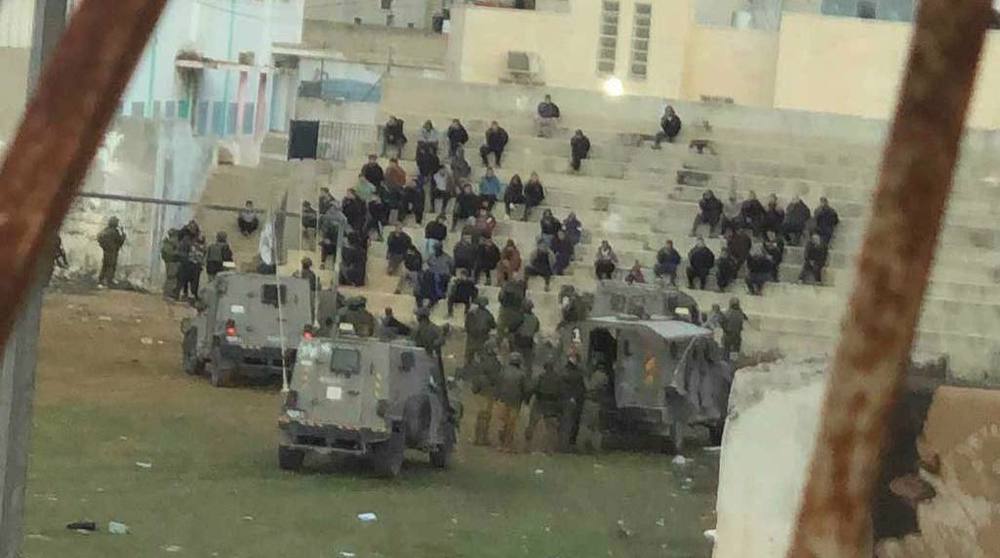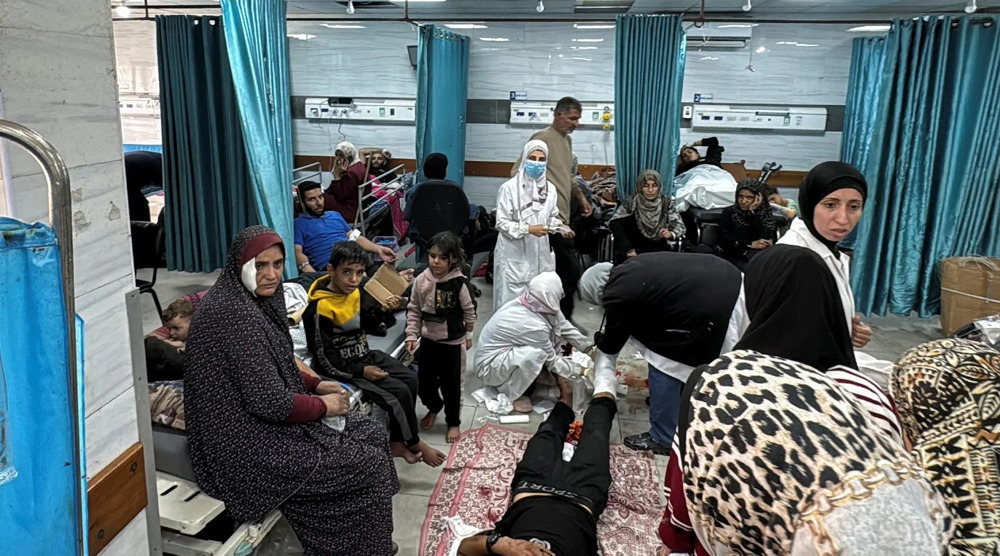Israel court refuses West Bank treatment for hunger striker
Israel’s top judiciary court rejected on Monday a Palestinian hunger striker's request to be moved from a hospital in northern Israel to a Palestinian-run hospital in the West Bank for medical treatment.
The court gave Mohammed al-Qiq until 10:00 am (0800 GMT) on Tuesday to decide whether he would like to be transferred, instead, to the Palestinian-run Makassed Hospital in the annexed part of East al-Quds (Jerusalem).
The Israeli court also ruled that the administrative arrest of al-Qiq is to be suspended.
The supreme court statement said it recommended the "transfer of the hunger striker to Makassed Hospital in east Jerusalem to continue his treatment."
The statement added that the ruling was "in the framework of the frozen administrative measures concerning him."
Although the Makassed Hospital is Palestinian-run, Israel views the whole of occupied East al-Quds as an integral part of its territory and has raided the hospital a number of times in recent months to arrest individuals or seize equipment.
The 33-year-old is reported to be close to death after 83 days on hunger strike in protest against his internment under Israel's so-called administrative detention laws.
His internment was officially suspended on February 4, but he was still prevented from leaving hospital in Afula in the northern occupied territories where he is handcuffed to his bed.
Qiq's lawyer has said his client will continue his fast "until he is freed," and demanded he be moved to a hospital in his West Bank home city of Ramallah.
Meanwhile, Fayha Shalash, the wife of the Palestinian journalist says her husband has refused Israeli supreme court's suggestion to transport him to the Makassed Hospital.

The Palestinian journalist's wife confirmed that her husband is calling for his freedom and transport to a hospital in Ramallah.
Qiq, who is a father of two and a correspondent for a Saudi TV network, was arrested at his home in Ramallah on November 21.
He has been refusing food since November 25 in protest against the "torture and ill treatment that he was subjected to during interrogation," according to Addameer, a Palestinian rights organization.
The United Nations has expressed concern about his fate, with the International Committee of the Red Cross described his condition as critical.
Israel's unlawful practice of administrative detention allows the regime forces to detain Palestinians without charge or trial for periods of six months which can be extended for indefinite times.
Occupation of Syria’s highest peak Mount Hermon part of ‘Greater Israel’ project
Iran: Syrian people will decide their future without foreign interference
IRGC says Iran’s power exceeds borders, warns enemies to adjust themselves
Dozens detained, several wounded in Israeli raids in West Bank
‘Ethnic cleansing’: Hamas blasts Israeli attacks on Gaza hospital amid intl. silence
Saudi delegation meets HTS leader at presidential palace in Damascus
Relentless Israeli ceasefire violations justify need for self-defense: Lebanese MP
Tel Aviv tells Damascus Israeli forces will remain in occupied territory: Report















 This makes it easy to access the Press TV website
This makes it easy to access the Press TV website